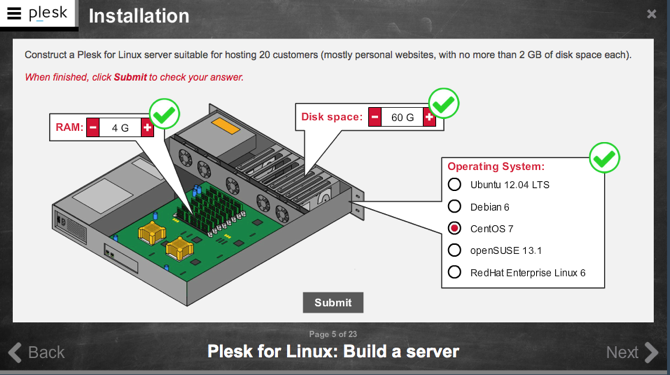Hello,
I'm following the Plesk University, and on the installation part there is a question concerning RAM, disk space, and OS. Concerning the OS, the choice is between Ubuntu, Debian, Red Hat Enterprise and Centos. The good choice is Centos. Why this distribution would be a better choice than the others ? Is it more secure or is the Plesk support better ?
Thank you
I'm following the Plesk University, and on the installation part there is a question concerning RAM, disk space, and OS. Concerning the OS, the choice is between Ubuntu, Debian, Red Hat Enterprise and Centos. The good choice is Centos. Why this distribution would be a better choice than the others ? Is it more secure or is the Plesk support better ?
Thank you

